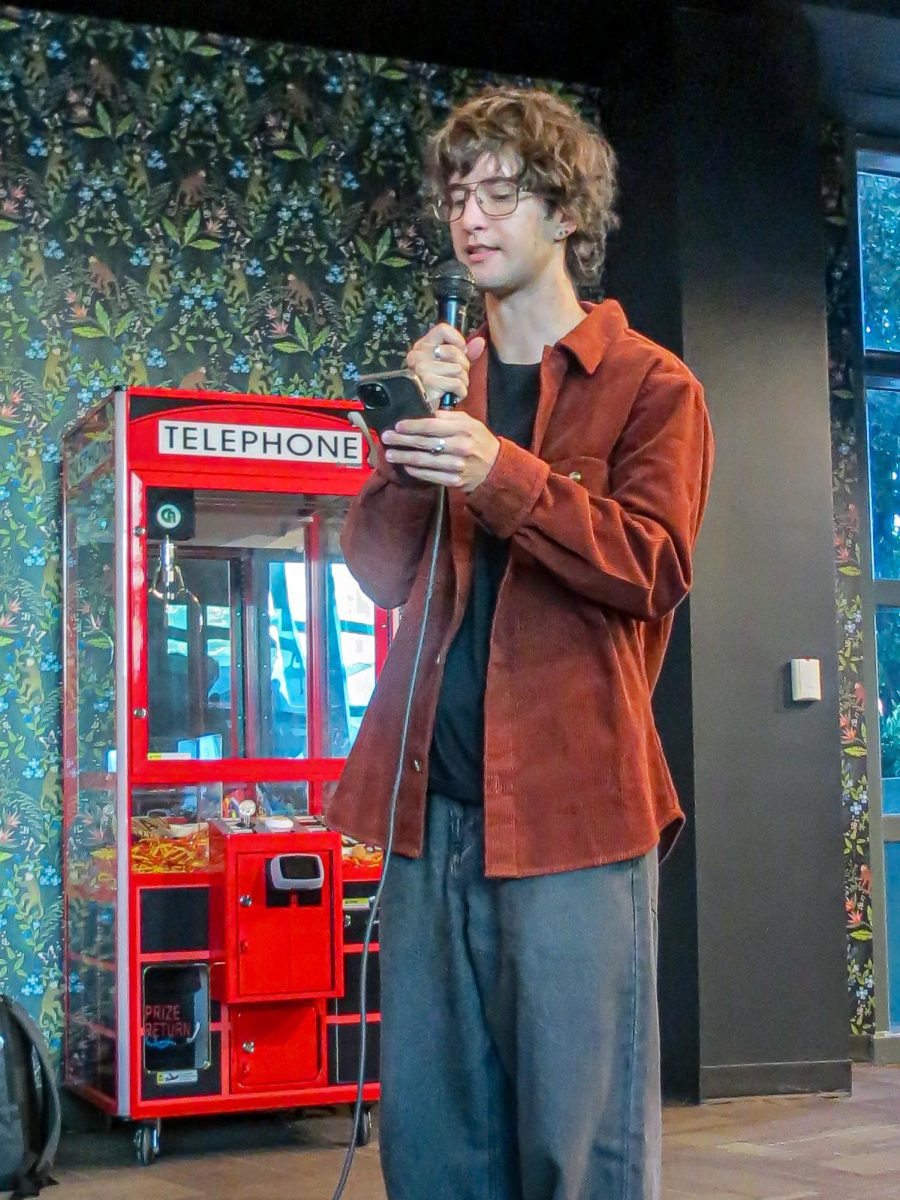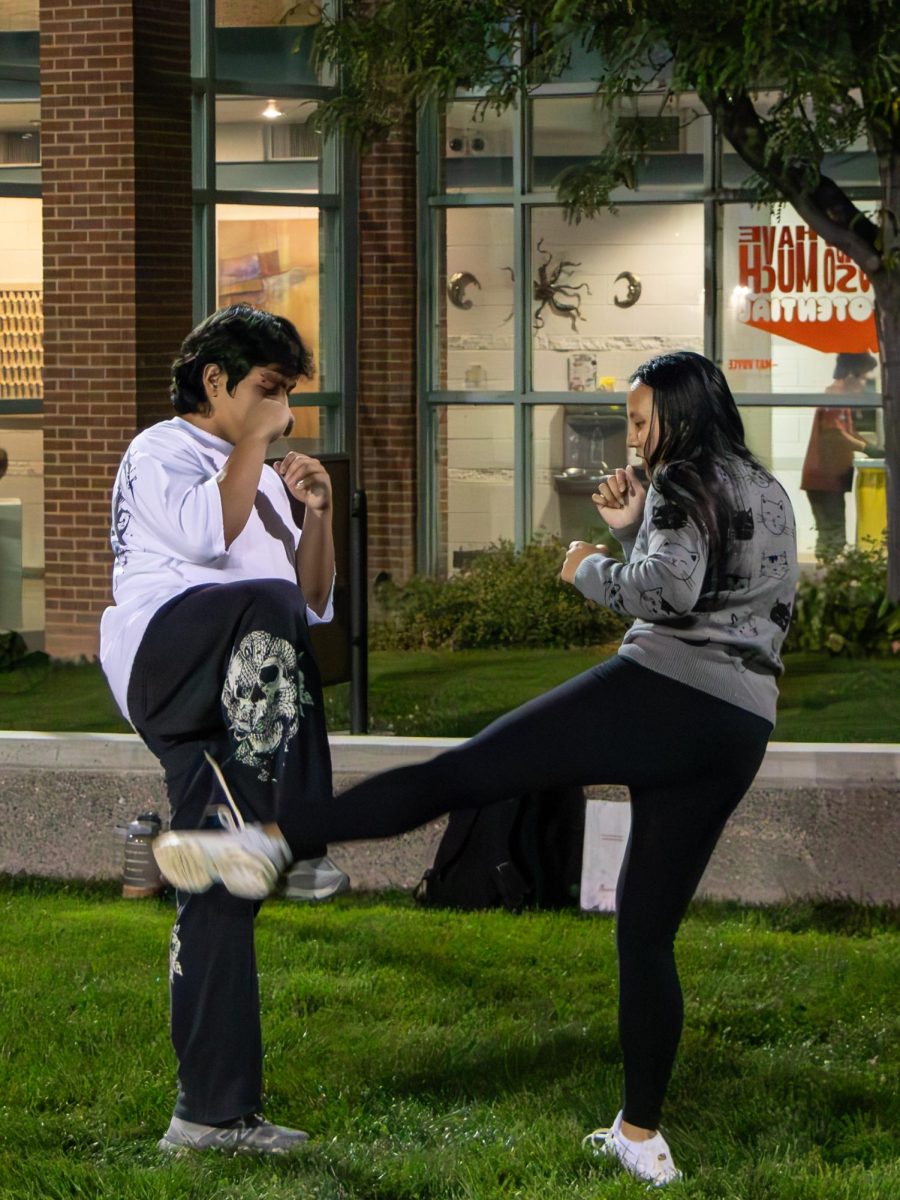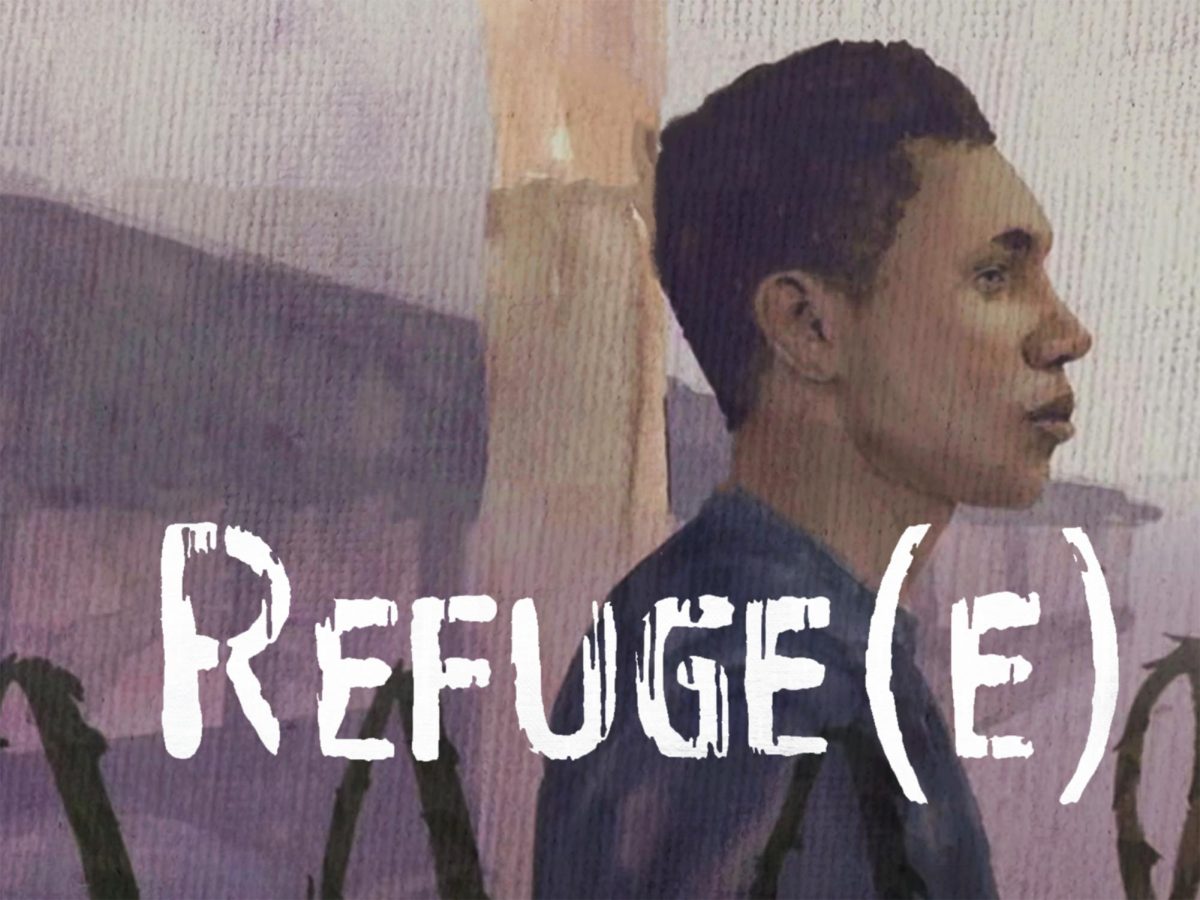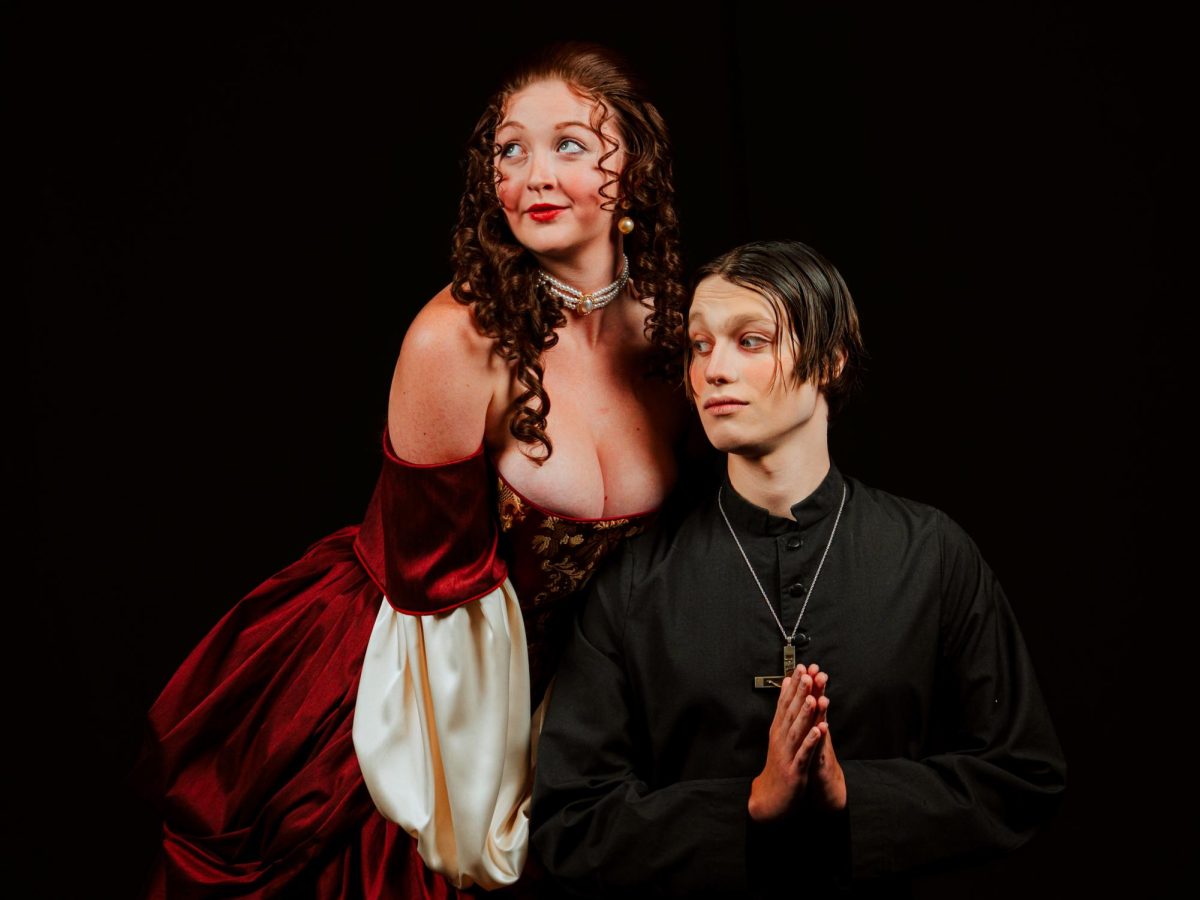On a crisp, early-fall afternoon, a man stands in the designated “free-speech” area of the Colorado Mesa University (CMU) campus. He holds a large sign that reads in bold letters: REPENT AND BELIEVE THE GOSPEL.
This man is John McFarland, a self proclaimed born-again christian who makes the drive to CMU from Clifton several times a week to preach the Christian gospel.
When McFarland comes to campus, counter-protestors follow, often wielding rainbow flags or other forms of self-expression. McFarland’s messages are often controversial and, according to CMU freshman Ayden Munholland, hateful.
“The hate that this guy is preaching is not what God or Jesus intends. God loves everyone. What he’s teaching is absolutely blasphemous. He claims to speak through God or God speaks through him. I’m praying for him,” Munholland said.
McFarland’s messages range, but he’s most known for preaching against a few core themes including promiscuity, homosexuality, drugs and alcohol. McFarland became more well-known on campus last year after criticizing the outfits of various female students and telling them to “cover up.”
“God’s daughters should dress modestly. So that way lust isn’t a factor in it. They could present themselves holy and modest to God instead of allowing guys to look at them with [lust],” McFarland said.
The counter-protests against McFarland’s messages are populated with students from a variety of backgrounds and beliefs. Munholland, for example, is Irish Catholic. Pagans, Christians and those of other religions as well as members of the LGBTQ community are among those that can be found listening to and debating against McFarland during these heated Monday and Tuesday afternoons.
CMU students Skyler Hester, Samuel Martin, Lillian Easterling and Henry Landrum are among those who come to counter-protest. All four friends are pagan.
“He just starts doing this and apparently he’s been here for years. It’s really annoying that he thinks that everyone who even slightly sins is going to hell. All of us [don’t] understand why [he’s] doing this. He’s victim-blaming. He’s saying [things] that are just so bigoted,” Hester, who is non-binary, said. “I don’t understand why he sees the need to do this because we’re really just trying to live our lives. And we’re kind of just trying to do whatever we think will benefit us personally.”

Alison Standish for the Criterion
McFarland usually clashes primarily with the LGBTQ community, as his rhetoric is strongly anti-LGBTQ and many of his counter-protestors are a part of the community themselves.
“[God] calls homosexuality an abomination to him, because it goes against what he created. It goes against what his purpose was for us, to make man and woman and to in a sinless environment, a sinless life, to be fruitful and multiply. But the enemy came in and deceived Adam and Eve and now there’s sin in the world and now people are doing whatever they want, and not heeding to the Word of God, which is [the] truth,” Mcfarland said.
McFarland believes that it’s his duty to preach the gospel. He said that Christ speaks through him and that he’s been given a personal responsibility to do what he does.
“I know what [Christ] saved me from. And I know he can save others. So, I’m urged, I have unction from the Holy Spirit of God, to come out and preach the gospel to all creatures,” McFarland said.
One of the counter-protestors, Samuel Martin, who is transgender, believes that McFarland has the right to exercise free speech. However, he said that this idea of free speech should go both ways and that he and his friends also have the right to express and vocalize the disagreements they have with McFarland’s messages.
“I do think he has a right to be here and it is a part of his religion, but we’re also allowed to be here and counter-protest. I think his beliefs are somewhat harmful. It’s harmful because I know my experience with Christianity was awful. I denied so much of myself,” Martin said. “And finally, I accept myself and I have a different religion. You don’t have to be religious or whatever, but just accepting yourself and loving yourself is more important than loving a God.”
According to CMU student Thyme Fortin, who has a lot of interest as well as years of experience when it comes to religion, McFarland’s methods don’t align with the true teachings of the gospel. She quoted a passage from First Corinthians, one that states: “Love is patient, love is kind, it does not envy. It does not boast. It is not proud. It does not dishonor others. It is not self-seeking, it is not easily angered and it keeps no record of wrongs.”
“If you keep that in mind, honestly, I don’t feel like he’s really following what he preaches in some ways. I still think he has good [intentions], like in his heart. I think he probably does view us all as sinners and wants us to go to heaven. I just don’t know if he’s going about it in a way that’s positive,” Fortin said.
Munholland stated that he’s deeply saddened by McFarland’s words and by the negative representation he thinks he is giving to the Christian religion.
“I guess I hope this guy finds his way. I hope he learns to love everyone else for who they are. As a Catholic, I believe regardless of gender, sexuality, race, anything like that, you should just love everyone, cause that’s what God intended,” Munholland said.
McFarland believes that he does what he does out of love. He said that, in the past, he was avidly involved in many of the things how now actively preaches against. McFarland believes that by coming to CMU and preaching to students, he will be able to save their souls.
“So if there’s any works of the devil that are in here, any evilness that are in these students’ hearts, I’m seeking to give them Jesus Christ and what he did for them on the cross, died for them, so they could be set free from sin and death. Sin and death [are] the works of the devil, so that’s why I’m here,” McFarland said.
According to an article published on CMUNOW, the university just adopted the Chicago Statement, a policy that protects the free speech and expression of students and faculty on campus.
This policy states that CMU is dedicated to upholding a culture made up of a wide variety of ideas and beliefs and that discourse, such as that between McFarland and his counter-protestors, is an integral part of the college experience.









